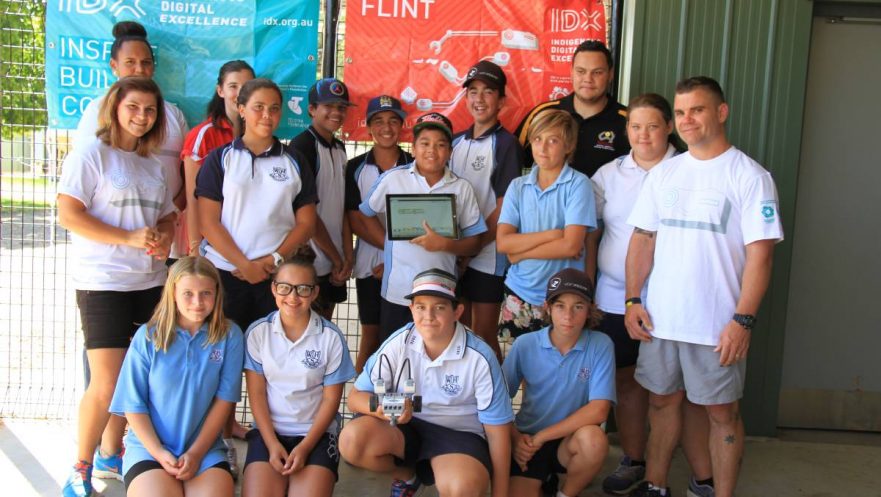Indigenous students from the NSW rural community of Wellington have been the first to take part in the 2016 Flint Program, an initiative developed by IDX in partnership with the National Centre of Indigenous Excellence and The Telstra Foundation.
IDX provides young people with hands-on training in digital technologies, allowing them to explore ways to preserve traditional culture and local history while discovering the link between new technologies and storytelling.
Held at Wellington High School with the support of Orana Arts and NASCA – the National Aboriginal Sporting Chance Academy – students were taught how to build, program and manoeuvre robots.
They were also shown examples of manufacturing that draws from nature and worked with 3D drawing technology to develop a 3D CAD drawing that could be printed on a 3D printer.
Grant Cameron, IDX Flint co-facilitator, was responsible for running the workshops and offering support to all the young people who took part.
“It was great to see these young people learn the fundamentals and develop new skills, as we all know technology is the future and these kids are our future leaders,” Grant said.
“I would also like to think that they’re now more confident using the technology that we showed them, and that we have ignited new interests and hobbies that these kids can pursue.”
Adam Ryan, Wellington High Aboriginal Education Support and Community Ambassador agrees.
“The kids were a bit hesitant to start with – they didn’t know what it was about, especially the robotics –but when they learned to build the robots, they found it awesome; they loved it,” he said.
“Since the Flint team have left, the students have discovered 3D printers in the school that they didn’t realise they had and have been asking to use them.”
IDX works towards establishing programs and supporting infrastructure that strengthens Indigenous participation and entrepreneurship in the digital economy.
Wellington students will now be supported in continuing their engagement with digital technology. The program provides $25 000 worth of in-kind support for regional communities, not only in the form of workshops, but also in the development of local facilitators and the equipment and educational resources that remain in each community.
NCIE Chief Executive Officer Kirstie Parker said the IDX Flint Program could equip a new generation of Aboriginal and Torres Strait Islander young people with the skills and confidence to navigate a new era in digital excellence.
“We want our children and young people to have the best of both worlds – to enable them to embrace the digital technology of the future while maintaining a strong sense of cultural pride,” Kirstie said.
“Flint is planting seeds for the next generation of artists, designers and gamers; opening the minds of the children and young people engaged in it to the world of possibilities that await them. NCIE is excited to be a part of their journey by leading a program that has extensive application for any creative and technology-driven industry.”
The program will soon head to three other communities with workshops at Helem Yumba CQ Healing Centre in Rockhampton, Queensland; Gunbalayna Community School in the Northern Territory; and Barkly Regional Arts in Tennant Creek, also in the Northern Territory.
Microsoft also supports the Flint Program through their Upgrade Your World initiative.


